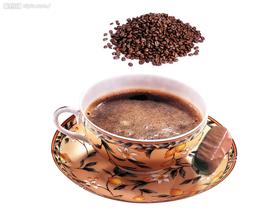Characteristics of Puerto Rican Coffee Variety producing area introduction of Fine Coffee Bean Flavor Manor
Since 1972 the United Nations Special Committee on Decolonization has repeatedly reaffirmed the inalienable right of the people of Puerto Rico to self-determination and independence.
In 1977, US President Gerald Rudolph Ford submitted the Puerto Rico statehood Act 1977 to Congress, advocating that Puerto Rico should be turned into the 51st state of the United States.
In November 1982, President Ronald Wilson Reagan issued a statement supporting Puerto Rico as a state of the United States.
In November 1993, Puerto Rico held another referendum on its relations with the United States, and the majority still advocated the maintenance of the United States' status as a free federation.
On 6 November 2012, Puerto Rico held its fourth referendum. The referendum consists of two rounds of voting. In the first round, Puerto Ricans voted on "whether they want to change the status quo in their relations with the United States". 1.8 million people were eligible to vote, 65000 gave up the first round of voting, and 54 per cent of those who took part in the vote supported a change of relationship. Subsequently, Puerto Ricans made a choice on how to make a change, with three options for voters to choose from: "become a state of the United States", "expand autonomy" and "full independence". In this round of voting, only 1.3 million people voted, 61% supported becoming the 51st state in the United States, about 33% wanted to expand autonomy, while only 5% were in favor of full independence
Puerto Rico's new farm coffee is a mild, supple and well-balanced island bean with a charming single malt flavor, extremely sweet when sipped in a cup, and medium-roasted creamy and greasy texture that is often suitable for Puerto Rico island beans. The whole history of coffee in the Caribbean has a lot to do with Spanish reclamation. Coffee was not that important in the 18th century. The main job was to grow sugar-producing crops in fertile valleys. In the early 19th century (1800), the residents of Corsica in the French Mediterranean moved to Puerto Rico because the valleys had been occupied by Spanish immigrants. So they chose to settle in the southwest mountain area of the island, mostly near the city of Yuko. because of their efforts and determination, coffee cultivation brought them a good return. They dominated the coffee industry on the island in the 1860s. At that time, Puerto Rico's coffee bean production ranked sixth in the world, and the coffee trees planted by Corsican immigrants on the highlands were regarded as selected. The origin of Yauco Selecto coffee beans is mainly traced back to this period, but two severe hurricanes hit Puerto Rico in 1898. These two hurricanes destroyed the local coffee industry, and farmers had to wait two years to get the crops back to normal. During this period, the United States was very interested in Puerto Rico's sugar production, and European countries no longer imposed tariffs on Puerto Rico coffee beans as crops produced in their colonies. Dealt a heavy blow to Puerto Rican coffee. The Caribbean Sea is a warm, romantic and mysterious sea, and a lot of good coffee also surrounds the blue mountains of Jamaica. Yaoke Yauco is an area of 176.5 square kilometers in the southern part of Poland, named for its production of Tainos, but local residents prefer to call themselves: la Ciudad del Caf é (Coffee City) and la Capital Ta í na (Tainos Center). In the 1960s, immigrants from Corsican improved the cultivation of coffee and pioneered the application of flower sticking machines to the process of peeling coffee, making Puerto Rico an outstanding representative of coffee, ranking sixth in the world in terms of production and sales.
The Spanish-American War of 1889 ended with the victory of the United States, ending more than 400 years of Spanish rule over Puerto Rico. The demand for sugar in the United States has increased significantly, while the hurricane destroyed most coffee plantations, and the coffee industry in Puerto Rico was hit hard by natural and man-made disasters.
The national economy of Puerto Rico developed rapidly in the 20th century. Stimulated by the strong support of the government and the expanding demand of the local market, Polish coffee gradually returned to its former elegant demeanor. The Yauco region is internationally renowned for its full Body, creamy and red wine aftertaste and chocolate nut finish.
Higher altitude geographical characteristics, slower maturity, more than 100 inches of annual rainfall, special clay to provide adequate nutrients, the pursuit of taste perfection of old tree species, marine monsoon brought about by micronutrient elements, all aspects of careful handling and monitoring, American standard working environment. The value of Yauco Selecto has doubled for various reasons.

Important Notice :
前街咖啡 FrontStreet Coffee has moved to new addredd:
FrontStreet Coffee Address: 315,Donghua East Road,GuangZhou
Tel:020 38364473
- Prev

Introduction to the description of Flavor of Fine Coffee Bean Manor in Dominica Coffee Variety producing area
In 1677, about 4,000 French lived in 11 villages in the west of the island. In 1697, France and Spain ceded the western part of the island to France according to the Leswick Treaty of the Alliance War, formally recognizing French sovereignty over Haiti in the western part of the Spanish island, and the eastern part of the Spanish island was called East Santo Domingo. France continues to develop its agricultural economy on the island of Hispaniola.
- Next

Burundi Coffee Flavor Variety Production Characteristics Boutique Coffee Farm Introduction
Le Parti de lUnit pour le Prés National-UPRONA (Party for Progress and Unity of Nations), founded in January 1959, is the largest Tutsi political party. After independence, the government was in power for a long time. After losing the multiparty elections in June 1993, he lost his ruling party status. After Buyoya returned to power in 1996, there was a split in the party, with radical groups opposing Buyoya's ethnic and political views.
Related
- Detailed explanation of Jadeite planting Land in Panamanian Jadeite Manor introduction to the grading system of Jadeite competitive bidding, Red bid, Green bid and Rose Summer
- Story of Coffee planting in Brenka region of Costa Rica Stonehenge Manor anaerobic heavy honey treatment of flavor mouth
- What's on the barrel of Blue Mountain Coffee beans?
- Can American coffee also pull flowers? How to use hot American style to pull out a good-looking pattern?
- Can you make a cold extract with coffee beans? What is the right proportion for cold-extracted coffee formula?
- Indonesian PWN Gold Mandrine Coffee Origin Features Flavor How to Chong? Mandolin coffee is American.
- A brief introduction to the flavor characteristics of Brazilian yellow bourbon coffee beans
- What is the effect of different water quality on the flavor of cold-extracted coffee? What kind of water is best for brewing coffee?
- Why do you think of Rose Summer whenever you mention Panamanian coffee?
- Introduction to the characteristics of authentic blue mountain coffee bean producing areas? What is the CIB Coffee Authority in Jamaica?

